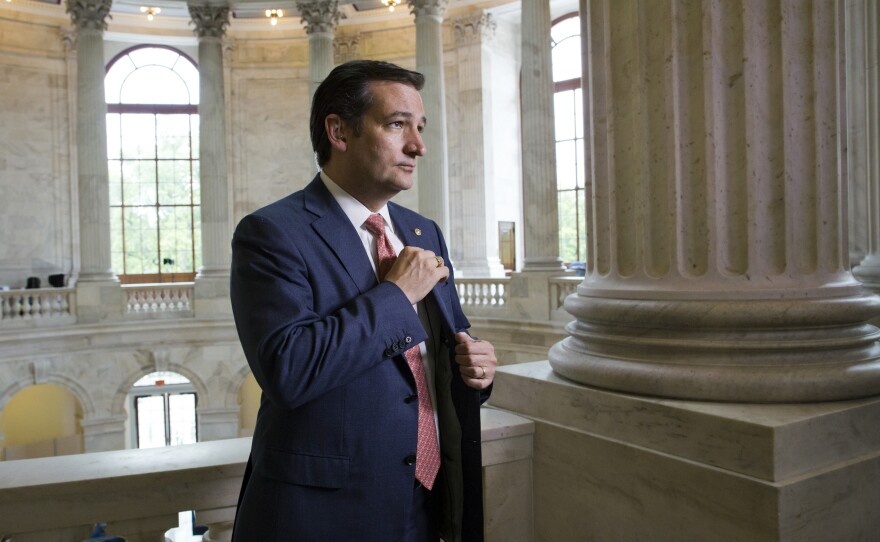
Forget, for a moment, about the bipartisan Gang of Eight, whose members crafted the original version of the immigration bill being taken up by the Senate this week.
There's another, very partisan gang to watch on the issue. Let's call them the Gang of Four, a high-profile group of relatively new Republican senators whose trajectories are set for the national stage. The group includes Marco Rubio of Florida, Kelly Ayotte of New Hampshire, Rand Paul of Kentucky and Ted Cruz of Texas -- some of the newest stars in the GOP firmament.
Immigration votes are among the hardest lawmakers ever take and no vote is tougher than one that could foreclose what once seemed like a promising political future.
That reason alone makes it worth knowing what these four have said so far on the immigration overhaul and what they're likely to do. Their views range from being present at the creation of the Senate bill to vehemently opposing the bill under consideration.
Rubio -- The Florida senator is also a member of the Gang of Eight. As such, Rubio is the one whose political future will most arguably rise or fall based on what happens with the immigration bill.
As a Cuban-American and a relatively new face on the national political scene, Rubio is often touted as the cure for what ails the Republican Party demographically: its difficulty in attracting Latino voters. Rubio's position on immigration has evolved in recent years, going from opposing a path to citizenship to supporting it.
Indeed, Rubio over the weekend told Univision in a Spanish-language interview, "First comes the legalization. Then come the measures to secure the border." That's not a popular position with many in the GOP base, to put it mildly.
But Rubio may be counting on some of the same dynamics that allowed Mitt Romney to win the GOP nomination despite having provided the Massachusetts model for Obamacare. Meanwhile, his position would make him much more competitive with a Democratic nominee for Hispanic votes.
Paul -- The conservative libertarian comes from a much different place than Rubio, both in terms of the region he represents and his position on the immigration overhaul. As the senator from Kentucky, a state with a relatively small Latino population, Paul doesn't face the same pressures as a senator from, say, Florida who might have to have a more charitable view toward individuals who are in the U.S. illegally.
Much of the pressure on Paul would come from conservatives, particularly those allied with the Tea Party movement, who helped him win election.
Paul, whose father, Ron, ran for president several times, is also thought to have his eyes on the White House.
So while he's said he sees the need for an immigration overhaul, Paul hasn't yet committed to the current Senate bill. He has said it needs revision, however, like stronger border security -- a nod to conservatives and his party's Tea Party wing.
Ayotte -- She became a conservative hero for voting against the Senate gun background-check legislation. But immigration politics are different than Second Amendment politics. Representing a state in the moderate region of New England, Ayotte has said she supports the Senate legislation.
Ayotte campaigned frequently for Romney in 2012 and was mentioned as a possibility as his vice presidential choice.
Cruz -- Of the four rising stars in this group, the Texas senator and Tea Party favorite is the one likeliest to vote no if the final Senate bill bears any resemblance to what's now being debated, especially if it contains a path to citizenship.
He has argued a border-security first approach to overhauling immigration and opposed a path to citizenship for those now in the U.S. illegally.
That's a position supporters of the Senate bill liken to a poison pill since, they argue, it would be near impossible to ever satisfy Cruz and those like him that the U.S. borders were adequately secured and a citizenship path is the sine qua non.
While Cruz represents a state with a huge Latino population, they aren't in his political base and, at this rate, never will be. But those who do form his current political base are likely to find his views on immigration closely aligned with theirs. Thus, he may have limited crossover appeal to Latinos but he's "dancin' with the ones that brung him," something well understood in Texas.
Copyright 2013 NPR. To see more, visit www.npr.org.






